You need to sign in or sign up before continuing.
Scan barcode
The Most Influential Sci-Fi Books of All Time (Book Riot, 2021) - NEW VERSION
Hosted by mx_eyebrows
33 participants, 73 books
You can start and finish this challenge whenever you like!
What do we talk about when we talk about science fiction? Is it our hope for the future, or our fear of creating the very thing that will destroy us? If the most influential sci-fi books of all time are any indication, the answer is both.
Since the early 19th century, humanity has been fascinated by its own ability to move goalposts and demolish old boundaries in the dogged pursuit of progress. Our interpretation of that progress frequently shifts between cautious optimism and resignation toward our own doom, due to various social and political climate changes. But even at our most pessimistic, when we collectively felt as if we’d lost some great cosmic game, never, not once, have we ever stopped writing and reading new futures for ourselves. That’s a testament, not only to the staying power of sci-fi, but also to the tenacity of the human race.
The most influential sci-fi books of all time have shaped not just science fiction and its myriad sub-genres, but horror, fantasy, and manga, as well. Filmmakers have drawn inspiration for the stories between their covers, and real-world STEM developments have been made in their names. Without these books, for better or worse, our world would not be what it is today.
https://bookriot.com/the-most-influential-sci-fi-books-of-all-time
https://bookriot.com/the-most-influential-sci-fi-books-of-all-time
Challenge Books
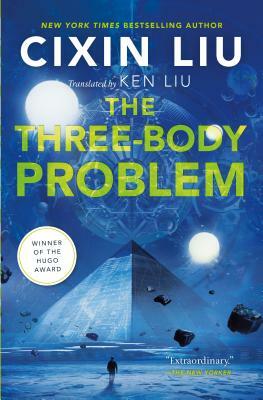
The Three-Body Problem
Cixin Liu
Cixin Liu’s Remembrance of Earth’s Past trilogy — The Three-Body Problem, The Dark Forest, and Death’s End — became many western readers’ first introduction to Chinese science fiction when Ken Liu’s English translation of the first installment appeared on store shelves in 2014. That translation took home the Hugo Award for Best Novel, becoming the first book by an Asian writer to do so, and opening the door for other sci-fi writers from the Chinese diaspora, including Hao Jingfang, S. Qiouyi Lu, and Xiran Jay Zhao.
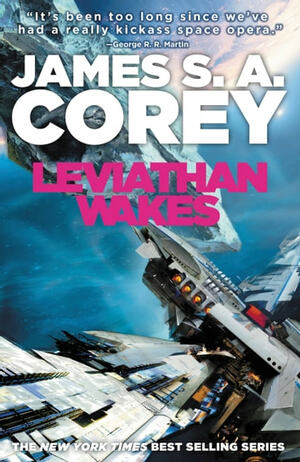
Leviathan Wakes
James S.A. Corey
Long live the space opera! James S. A. Corey — AKA Daniel Abraham and Ty Franck — revived readers’ interests in epic space battles with their Expanse series, beginning with Leviathan Wakes in 2011. The ongoing story has inspired a television adaptation, comic-book miniseries, board game, and tabletop RPG, and it took home the Hugo Award for Best Series in 2020.
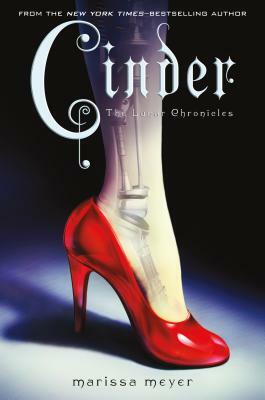
Cinder
Marissa Meyer
Sci-fi fairytales anyone? Marissa Meyer kicked off her Lunar Chronicles series with 2012’s Cinder: the story of a cyborg mechanic who may hold the key to saving an empire from a deadly plague. Much like A Wrinkle in Time, Cinder convinced a generation of girls and young women that there was a place for them in sci-fi.
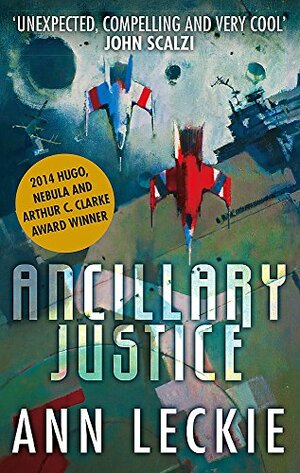
Ancillary Justice
Ann Leckie
The first novel to win the so-called triple crown of sci-fi awards — the Hugo, Nebula, and Arthur C. Clarke Awards — Ann Leckie’s 2013 debut, Ancillary Justice, launched a sweeping sci-fi epic that critiqued language, gender, and colonialism via a decades-in-the-making revenge plot.
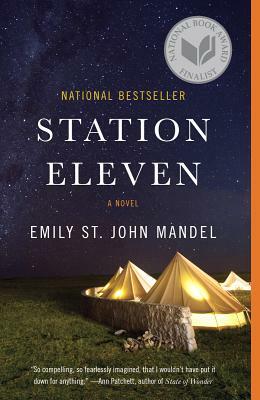
Station Eleven
Emily St. John Mandel
When we’re talking about recent, literary sci-fi novels, it doesn’t get much better than Emily St. John Mandel’s Arthur C. Clarke Award–winning Station Eleven. Set in the Great Lakes Region following a devastating plague that ended western civilization as we know it, Mandel’s breakout novel follows a Shakespearean acting troupe as they go toe-to-toe with a fanatical Prophet who runs a sex cult out of the small town he lords over.

Area X: The Southern Reach Trilogy: Annihilation; Authority; Acceptance
Jeff VanderMeer
The VanderMeers define the New Weird, and it doesn’t get much weirder than Jeff VanderMeer’s Southern Reach trilogy. Inspired by the St. Marks National Wildlife Refuge in Florida, the series has since inspired a conservation effort for the refuge, which sells authorized Area X merchandise.
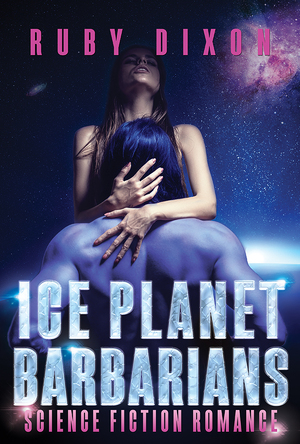
Ice Planet Barbarians
Ruby Dixon
Ruby Dixon’s erotic series centered on interspecies relationships between aliens and humans blew up on BookTok earlier this year, a surge in popularity that likely contributed to Berkley’s recent acquisition of the series. The monster romance trend that took off, as a relative novelty, with The Shape of Water in 2017 has resurged with Ice Planet Barbarians. It doesn’t take a psychic to see that alien-human romance novels are here to stay, now that Dixon’s getting major recognition.
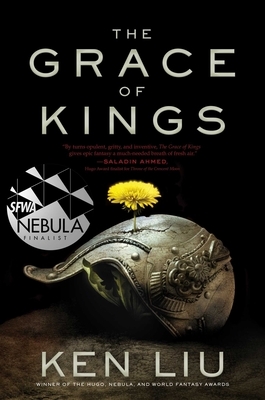
The Grace of Kings
Ken Liu
The novel that gave us the silkpunk genre, Ken Liu’s The Grace of Kings is a sweeping, science-fantasy epic of political intrigue, set in a high-fantasy world inspired by Chinese myth. In much the same way that The Three-Body Problem opened the door for Chinese science fiction, Liu’s Locus Award-winning trilogy-starter made space for genre-bending in East Asia–inspired English literature.
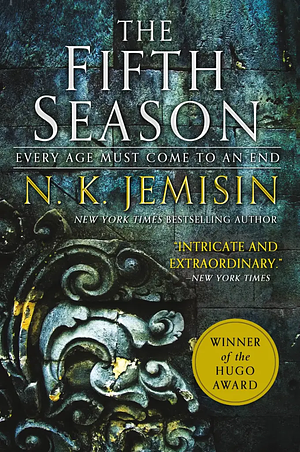
The Fifth Season
N.K. Jemisin
In 2016, N.K. Jemisin made history by being the first Black author to win the Hugo Award for Best Novel with the first installment of her Broken Earth trilogy, The Fifth Season. The next year, Jemisin landed another first with The Obelisk Gate, becoming the first author ever to win the Best Novel Hugo two years in a row. And in 2018, the celebrated author did what no one else had ever dreamed of, sweeping the Best Novel category a third consecutive time with The Stone Sky. The Broken Earth trilogy is history-making, and it deserves to be part of every conversation surrounding contemporary sci-fi.
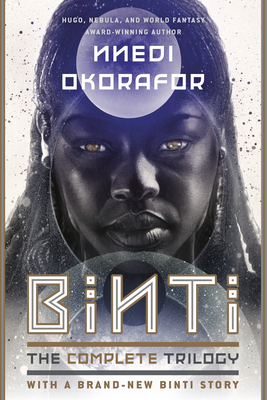
Binti: The Complete Trilogy
Nnedi Okorafor
Nnedi Okorafor’s multi-award-nominated novella trilogy centers on Binti: a Himba girl who defies her parents and sets off on an intergalactic journey when she becomes the first of her people to be accepted at a prestigious, space-based university. Drawing from Lilith’s Brood, the Binti trilogy follows its young heroine as she bonds with the Meduse: a strange alien race intent on wiping out her university. Binti and its sequels ushered in what Tor.com dubbed “the new golden age of the SFF novella.”
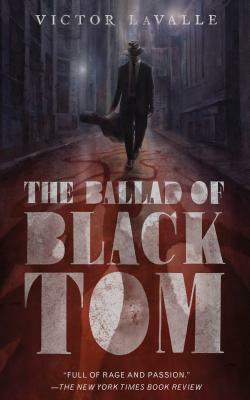
The Ballad of Black Tom
Victor LaValle
Like the novella, Lovecraft retellings have seen a resurgence in mainstream SFF, particularly those written by people the notoriously xenophobic author vilified in his own writings. One of the leading titles in that resurgence is Victor LaValle’s The Ballad of Black Tom, which revisits the events of H.P. Lovecraft’s “The Horror at Redhook” through the eyes of a Black musician hired to facilitate Robert Suydam’s deal with the devil.
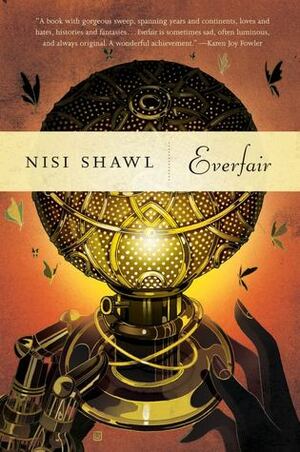
Everfair
Nisi Shawl
An alternate history of the Congo, Nisi Shawl’s Everfair offers a steampunk vision of central Africa, one that directly challenges western interpretations of Belgium’s colonization of what is now the Democratic Republic of the Congo. Shawl’s novel offers up a take on African-inspired SFF that’s become more popular in recent years, but still often smacks of novelty, thanks to the relative rareness of African settings in speculative fiction today.